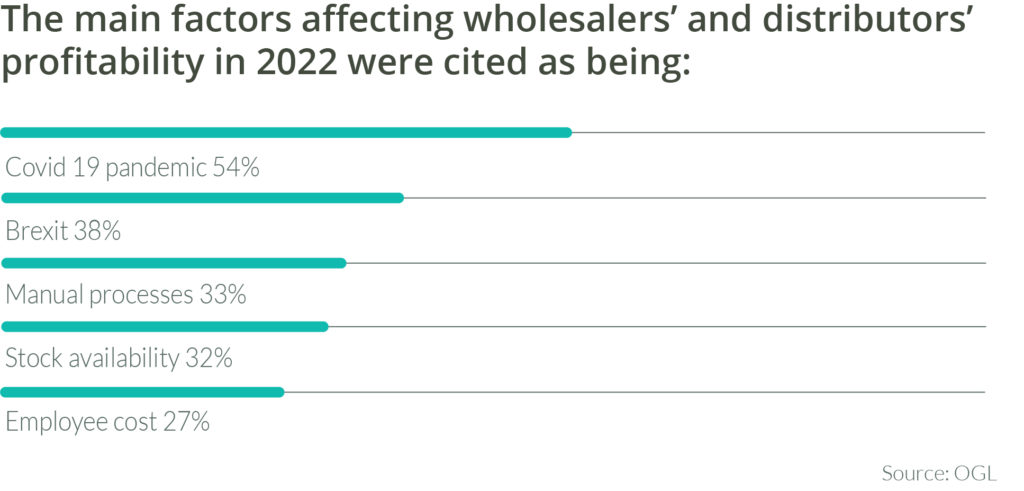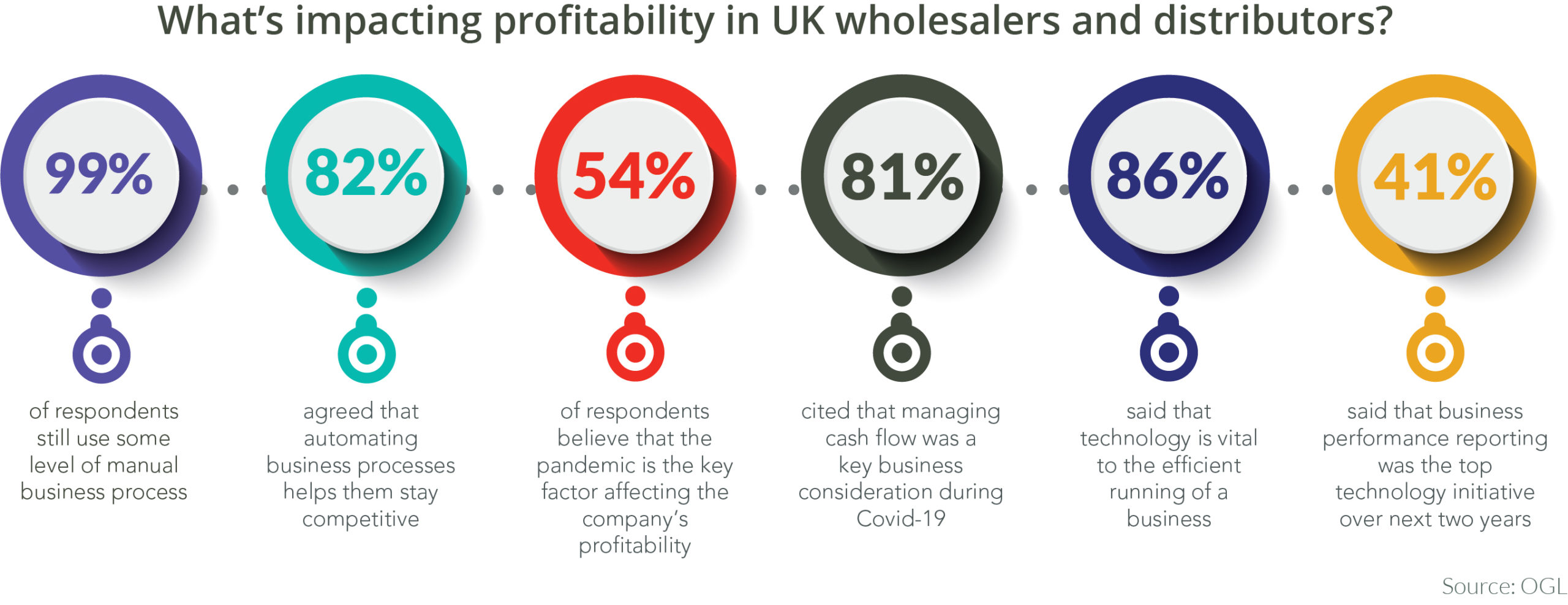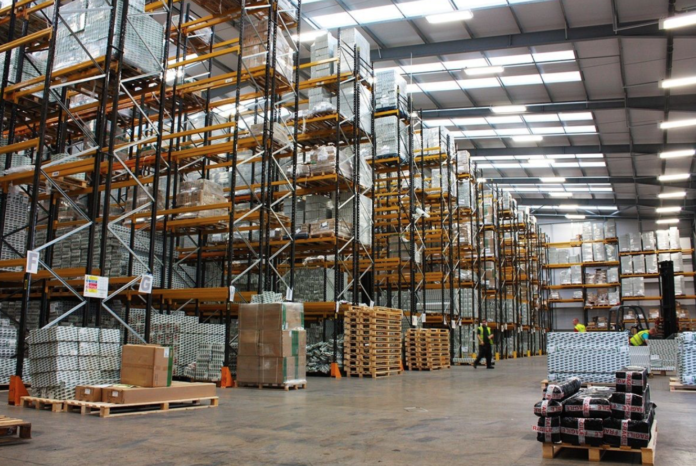Covid, Brexit, as well as the continued reliance on manual processes and supply chain issues have been revealed as the greatest factors affecting profitability for wholesale this year, according to a survey commission by OGL Group.
The findings show that both the Covid pandemic and Brexit have hit supply chains hard and necessitated many businesses pivoting to online sales. Exacerbated by stock management pressures, firms are citing top technology priorities for the next 12 – 24 months as business performance reporting 41%, linking ERP with e-commerce 40% and managing inventory 33%.
Read more: KAM Media research shows planned increased activity over Christmas
The five main factors affecting wholesalers’ and distributors’ profitability in 2022 were cited as the Covid 19 pandemic 54%, Brexit 38%, manual processes 33%, stock availability 32% and employee cost 27%.
Digging deeper into coronavirus and its effects, respondents’ business priorities were to manage cashflow 81%, have a crisis plan in place 80% and flexible employees 80%.
Back in 2019, when OGL conducted the same survey, respondents cited Brexit as the main factor at 47%, followed by employee costs 44% and inaccurate data 38%.
Brexit and manual processes are still in the top five, but unsurprisingly Covid is the top factor affecting wholesalers and distributors this year. Inaccurate data 24% and outdated technology 27% have been ousted by the pandemic and stock availability.
 Entering another potentially uncertain economic period with continuing supply-chain issues, the Ukraine-Russia war, cost of living and fuel price rises, wholesalers’ efforts to increase profitability are critical. Technology is at the heart of this. 86% of respondents agreed that technology is vital to the efficient running of their business, while 82% agreed that automating business processes helps their companies stay competitive.
Entering another potentially uncertain economic period with continuing supply-chain issues, the Ukraine-Russia war, cost of living and fuel price rises, wholesalers’ efforts to increase profitability are critical. Technology is at the heart of this. 86% of respondents agreed that technology is vital to the efficient running of their business, while 82% agreed that automating business processes helps their companies stay competitive.
A key finding of the research was the wide spread of technologies used and the disparate nature of systems that are not necessarily “talking to each other” to provide a full view of operations. Wholesale businesses use a range of software systems to function: more than 95% of respondents use one or more software systems to run their business, from warehouse management, inventory/stock control to accounting software, CRM (customer relationship management) and ERP (enterprise resource planning).
Gary Reynolds, operations director across OGL Group, a technology provider with a strong client base in the wholesale and distributor sector, commented: “This year’s findings reflect the huge impact the pandemic has had across any business that holds stock. Supply chain uncertainties exacerbated by Brexit and the pandemic have impacted companies’ profitability.
“Many smaller businesses just don’t have the ability or money to stockpile products to meet pent up demand, and now with the fuel crisis and war, they are having to take a pragmatic approach to supply customers.
“At OGL Group, we have seen our clients evolve since 2019, when we last conducted the same survey. Many have transformed their businesses at breakneck speed, but we are not out of the woods yet. Only through full visibility of all business processes, ideally via a single dashboard, will they fully understand their business, areas for improvement and a plan to meet the challenges that 2022 will bring.”

OGL Group’s top 5 tips for a successful ERP implementation for wholesale and distributor businesses
1. Conduct a Business Process Review – review your existing IT infrastructure to see how you can better use technology to increase business effectiveness.
2. Review and clean data – take the time to review and clean your customer, supplier and product data to ensure that only quality data is transferred to avoid further complications and data errors.
3. Select an ERP platform based on your future strategy and goals – choose a software solution that will grow with your business and support your needs in the future. Ideally, one that can integrate with other products and provides an API for automating processes.
4. Don’t underestimate training – identify super users for each department and they will help to train staff moving forward while taking ownership of business processes for their division.
5. Choose the right partner – invest in a software provider that can support you and help you to achieve maximum potential from your investment.
NB: survey conducted in March 2022 and any comparison is to the same questions in September 2019. Respondents were given a number of options for each question.









[…] Building Better Healthcare and Electrical magazine – plus wholesale specific titles including Better Wholesaling and Electrical […]
[…] Building Better Healthcare and Electrical magazine – plus wholesale specific titles including Better Wholesaling and Electrical […]